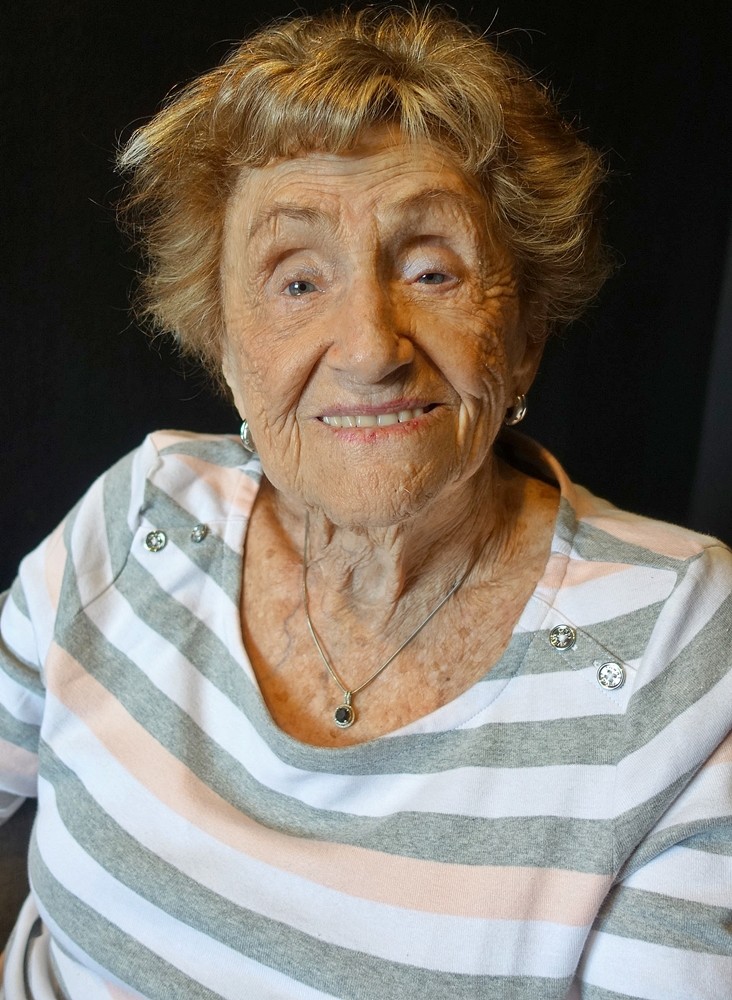Rose Lipszyc was born in Lublin in 1929 as Rózia Handelsman. She had two brothers: Icek and Henio. Her father Lejzor Handelsman was a tailor. Her mother Dwora, an accountant by education, was a housewife. They lived at 30 Grodzka St. in the Old Town, where the energetic Rózia played with her friends and numerous cousins.
The Second World War broke out when Rózia was ten years old. In 1941, her family left for the countryside to Osmolice near Lublin. The Handelsmans made a living by working in the fields and selling their possessions; the father earned money by sewing.
On 16 March 1942, as part of Operation Reinhardt, the Germans began deporting Jews from the General Government to extermination camps. On 13 October, Rózia's family ended up in the Bełżyce ghetto, where men were separated from women with children. Rózia, her mother and her younger brother were assigned to a group herded towards the railway station. "I can't believe the whole world has gone mad! There must be a man to help you. I feel it!" said her mother to Rózia as she pushed her blue-eyed and fair-haired daughter to the side of the road. She recalls that moment: “I was so scared. The last German guard approached me and asked if I was Jewish. But a Pole, riding a cart at the back, shouted: Can't you see she's Polish? And I was left alone on that road.”
Rózia reached a farmer she knew in the village of Nowiny near Krężnica Jara. Stanisław Jabłoński gave her his daughters' baptismal certificates and sent her to Lublin, where her aunt was still staying in the residual ghetto. Thanks to his help, two Jewish women, Rózia (age thirteen) Handelsman and Róża Finkielsztajn (age 21), were sent to perform slave labour in Germany as the Polish sisters Helena and Leokadia Jabłoński.
For almost three years they worked in a factory in Bremen. It was a time of hunger, overwork and constant fear of revealing their Jewish origins. Their false identity was guaranteed by letters and food parcels sent by their "father" Stanisław, who put his own and his family's lives at risk in doing so.
After the liberation, Rózia left for Palestine. In 1952, she moved to Canada together with her husband Jakub Lipszyc.
Rose Lipszyc still meets with Canadian and Polish youth to recount her wartime fate as a witness to history. In 2019, Stanisław Jabłoński and his wife Maria were posthumously awarded the title of Righteous Among the Nations.
